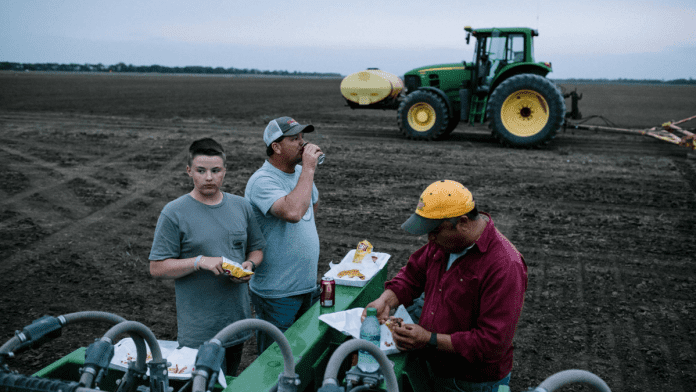News in Brief:
– Arkansas faces a projected $500 million decline in net farm income for 2024, driven by lower crop prices and challenges in the livestock sector.
– Despite expected decreases in production expenses, government support may not fully offset the income loss, highlighting the need for farmers to adapt to changing market conditions.
Arkansas, a state in the US, is currently facing a significant challenge as its net farm income is projected to plummet by $500 million in 2024, marking a continuation of the downward trend from the previous year, an article said.
The latest “Spring 2024 Arkansas Farm Income Report,” authored by Hunter Biram and Ryan Loy, extension economists at the University of Arkansas System Division of Agriculture, sheds light on the factors driving this decline and its implications for local farmers.
Economic dynamics and government support
The report attributes the anticipated 15% drop in net farm income to various factors, notably the downward pressure on crop prices due to abundant harvests of soybeans and corn in Brazil and the United States. This surplus has led to a significant buildup of stocks, resulting in lower crop receipts for Arkansas farmers. According to Biram, the decline in income is primarily driven by the reduction in crop prices across the board, exacerbating the financial strain on agricultural producers.
While the analysis anticipates a decrease in production expenses, including fuel and fertiliser costs, the benefits are offset by the decline in crop prices. Emergency relief programs, which buoyed farm income in 2022, are unlikely to provide the same level of support in 2024. Government payments, such as the Price Loss Coverage (PLC) and Agriculture Risk Coverage (ARC) programs, are contingent upon market conditions and may not fully mitigate the income loss for farmers.
The livestock sector is also poised to experience challenges, with projected declines in receipts for broilers, turkeys, and eggs. However, higher prices for cattle and calves offer some respite, mitigating the impact of lower supplies. Despite these challenges, the report underscores the resilience of Arkansas farmers and highlights opportunities for continued growth, particularly in the livestock segment.
The Rural and Farm Finance Policy Analysis Center at the University of Missouri, in partnership with other states, plays a crucial role in providing objective policy analysis to support decision-makers and enhance farm and rural finances. Through collaborative efforts and informed decision-making, stakeholders can navigate challenges and foster economic resilience in the agricultural sector.



